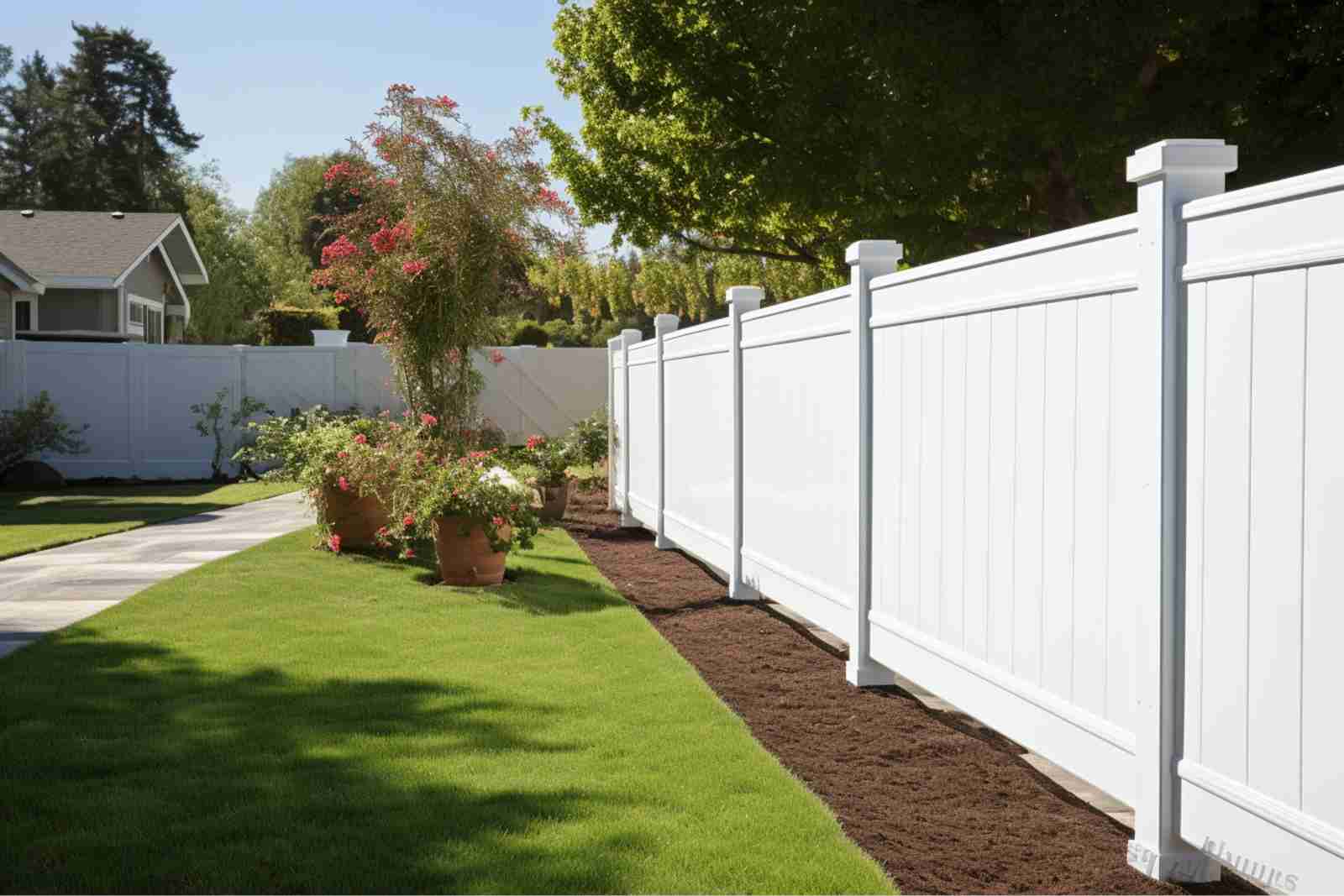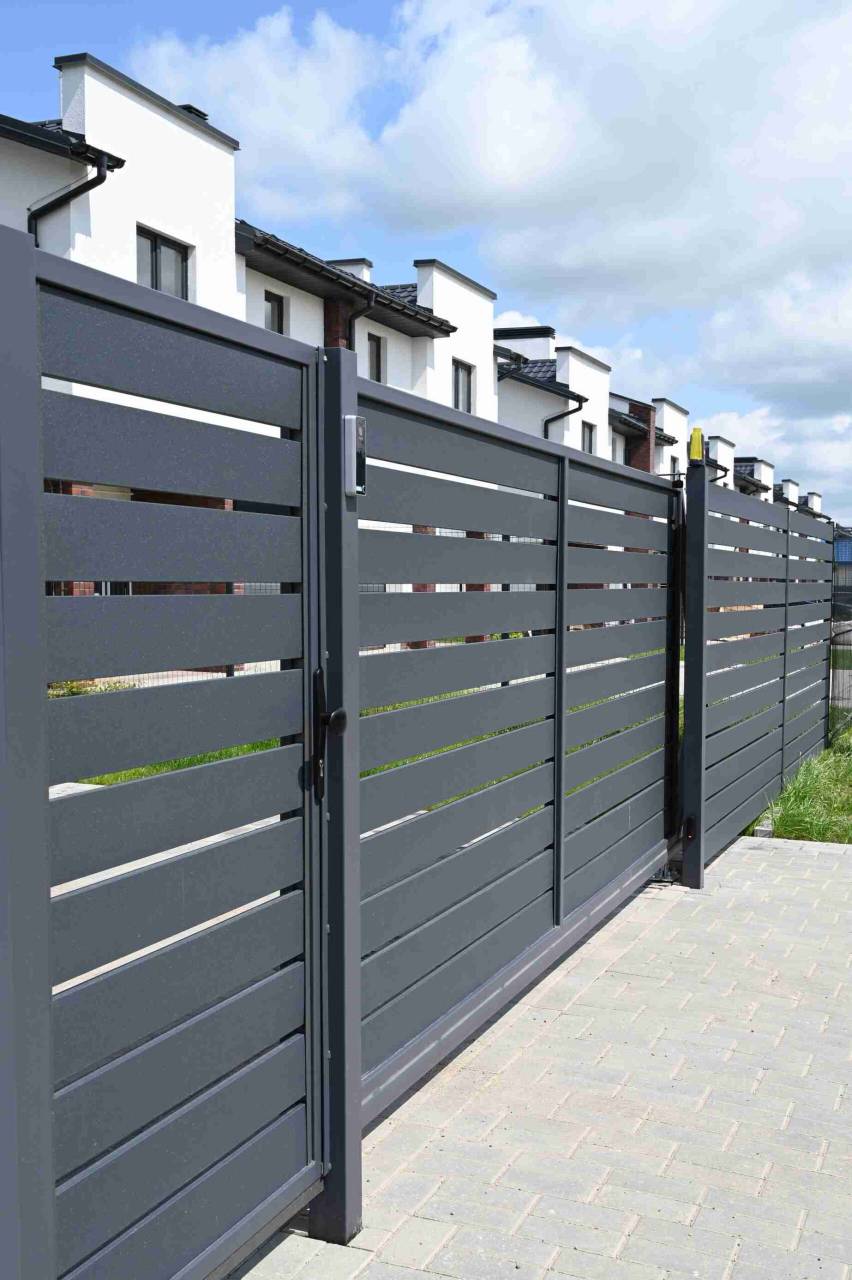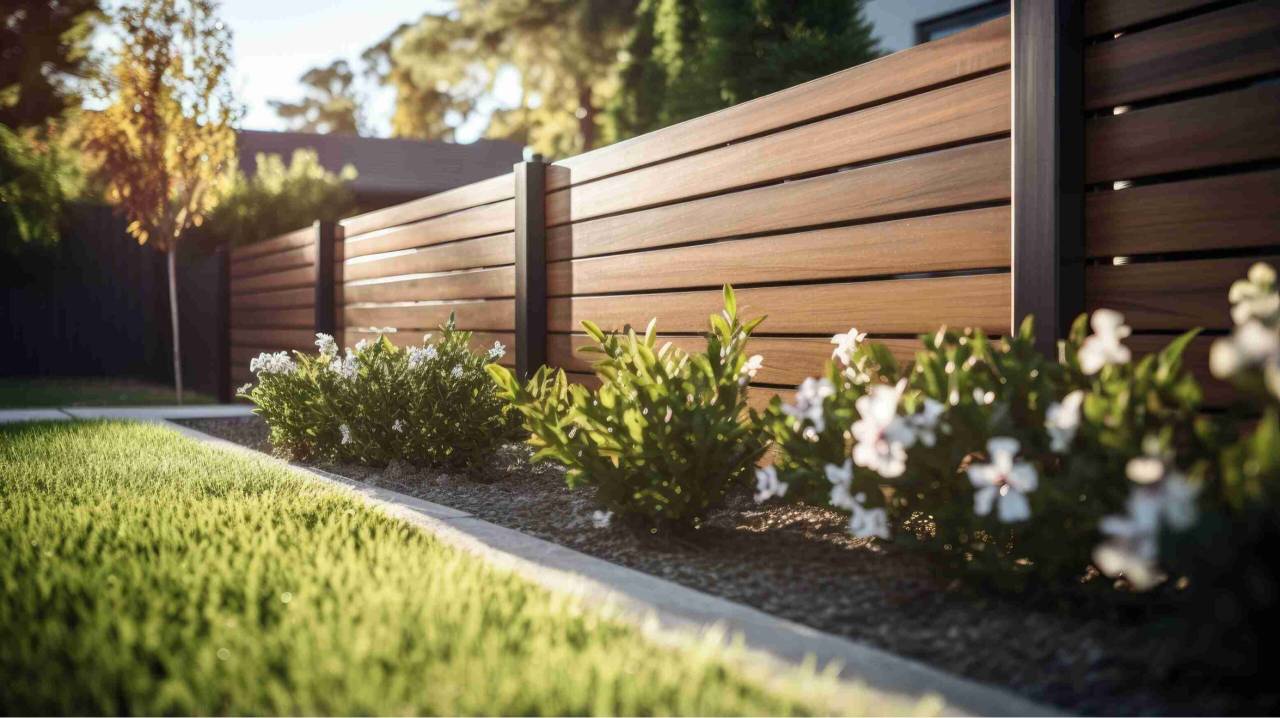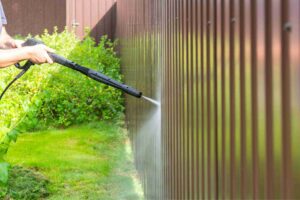How to Clean a Fence: Complete Guide for All Materials
In this blog post, we’ll delve into practical methods to restore your fences to a clean, rejuvenated state. Whether your fence is constructed from vinyl, wood, or aluminum, we’ll share how to treat each of those materials to remove stains and dirt.
From the most straightforward methods involving just soap and water to more sophisticated approaches, such as commercial products and even homemade solutions, we’ve got you covered on how to clean a fence.
How to Clean a Fence
Cleaning a fence is not a one-size-fits-all task. With different materials, varied stain types, and varying conditions of the fence (whether it’s brand new, aging, or painted), the proper cleaning method can differ significantly. There’s no singular correct method but rather a range of techniques tailored to specific requirements.
Whether you’re dealing with wood, vinyl, or aluminum, and whether the stain is fresh or stubborn, understanding these nuances is key. Keep reading to delve into the details and discover the most effective ways to clean your fence based on its unique characteristics.
What is The Best Thing to Clean a Fence With?
The best cleaning method for your fence depends on the material of the fence and the specific issues you’re dealing with. However, a mild non-abrasive detergent (can be acid or alkaline, check label) or specialized fence cleaner mixed with water is often a safe and effective option for many types of fences. This product is less likely to cause damage compared to stronger solutions like bleach.
Here’s an easy guide on how to prepare and apply this solution to your fence:
- Mix a mild detergent or specialized fence cleaner with water according to the product instructions.
- Scrub the fence using a soft brush or sponge, paying attention to areas with stains or mildew.
This method is generally safe for a variety of fence materials, including wood, vinyl, and aluminum. It helps remove dirt, grime, and light stains without causing damage. Now, we will explain in more detail how to clean each type of fence according to its material.
How to Clean a Vinyl Fence

Vinyl fences boast low maintenance requirements, but periodic cleaning is essential to ensure they maintain their pristine appearance and extend their long-lasting durability. In this section, we’ll explore various methods to clean a vinyl fence, addressing the specific needs of this material.
Soap and water
One of the simplest and most effective methods to clean a vinyl fence involves using a basic soap and water solution. Creating this solution is easy.
-
- Add about a tablespoon of soap to a gallon of water and give it a good stir.
- Once your soapy water solution is ready, use a hose, spray bottle, sponge, or a soft-bristled brush to apply it to the vinyl fence. Make sure you cover it all.
- Scrub the vinyl fence with a soft-bristled brush or sponge to help loosen and remove dirt and grime.
- Let it sit for a few minutes to allow the soap to break down dirt and grime.
- Rinse the fence thoroughly with water from your garden hose.
The combination of soap and water effectively removes surface dirt and restores the vinyl fence’s appearance. This straightforward method is not only budget-friendly but also a quick solution to maintain the beauty of your vinyl fence.
Garden hose
Cleaning a vinyl fence with your garden hose is an efficient method, particularly for routine maintenance. This is a convenient way to keep your fence looking clean and well-maintained with minimal effort.
- Start by spraying down the fence with the hose to remove loose debris and dirt.
- For more stubborn stains, you can use a nozzle attachment to increase the water pressure.
Vinegar solution
Cleaning your vinyl fence with a vinegar solution provides an eco-friendly and effective alternative, especially for tackling dirt and stubborn stains like algae. Vinegar’s acidic properties work well to dissolve and lift stains.
- Add a half cup to one cup of white vinegar to a gallon of water and mix it well.
- Apply the vinegar solution to the fence using a spray bottle, sponge, or a soft-bristled brush, ensuring complete coverage.
- For particularly stubborn stains, take the extra step of scrubbing the affected areas with a soft-bristled brush or sponge.
- Rinse the vinyl fence thoroughly with water from your garden hose.
Magic eraser
You can use a magic eraser to easily clean your vinyl fence. This special sponge is very effective for stains—even stronger than your regular bleach cleaner. First, wet the magic eraser and start scrubbing the dirty parts of your fence. The magic eraser quickly gets rid of scuffs and stains that other methods can’t handle. However, if you have a large fence, this may take quite a while, so other methods may be more efficient.
Pressure washer
When your garden hose falls short in removing stains from your vinyl fence, a pressure washer comes to the rescue for a powerful and efficient clean. The forceful water spray from a pressure washer can easily remove accumulated dirt, mud, or other tough stains that regular water pressure might struggle with. Before using a pressure washer, adjust the settings to lower pressure to avoid any potential damage to the PVC material.
You can also hire a professional pressure-washing company like Window Hero.
Hydrogen peroxide bleach
For a robust cleaning solution that can tackle a wide range of stains, hydrogen peroxide bleach is a go-to option. This powerful cleaner is especially effective for white vinyl fences, capable of eliminating stubborn stains that might seem impossible to remove. However, it’s important to note that while hydrogen peroxide bleach is excellent for whites, it may cause discoloration on colored vinyl fences. We recommend testing a small area before applying it more broadly to ensure your fence maintains its original color.
Commercial vinyl fence cleaner
When dealing with specific stains such as those from iron, mold, or tree sap, commercial vinyl fence cleaners are purpose-made solutions that can save you the day. These cleaning agents are formulated to target and effectively remove tough stains without causing damage to the vinyl material. Simply follow the product instructions, and your vinyl fence will look refreshed and stain-free in no time. Explore the variety of commercial vinyl fence cleaners available on the market to find the one that suits your specific cleaning needs.
How to Clean an Aluminum Fence

Aluminum stands out as an excellent material choice for household fencing thanks to its affordability, durability, and resistance ensuring a long-lasting investment. While aluminum is known for its low-maintenance qualities, periodic cleaning is still essential to uphold its appearance and structural integrity. Before diving into the cleaning process, it’s wise to take a few preparatory steps:
- Consider trimming back any vegetation that might hinder the cleaning process, making it more efficient and allowing you better access to your fence.
- Conducting a thorough inspection of your aluminum fence and keeping an eye out for any signs of damage or corrosion is a great idea to prevent further deterioration. Replace any damaged screws before starting the cleaning routine to ensure the fence is in optimal condition.
Now that you have everything ready, let’s explore our preferred methods for cleaning an aluminum fence.
Use a damp cloth or magic eraser
A damp cloth or magic eraser is a simple yet effective method for keeping your aluminum fence clean. Aluminum fencing boasts a naturally shiny appearance, and regular wiping with a damp cloth helps preserve this aesthetic appeal. This method is particularly beneficial if your fence is exposed to potentially harmful substances like fertilizer, lawn treatment, other chemicals, or grass clippings.
Frequent wiping not only removes surface dirt and dust but also prevents the buildup of corrosive elements, ensuring that your aluminum fence stays looking vibrant and well-maintained. Incorporating this routine into your regular maintenance can go a long way in extending the life and aesthetics of your aluminum fencing.
Ad some cleaning solution
When dealing with more stubborn stains on your aluminum fence, the addition of a suitable cleaning solution can make all the difference. Check out these ideas:
- For painted aluminum, where a bit of extra scrubbing might be required, opting for a basic degreaser proves effective in lifting persistent marks.
- Tackling water stains, on the other hand, can be efficiently managed with CLR (Calcium, Lime, Rust) cleaner. Ensure a thorough rinse of your fence after applying CLR to guarantee a pristine finish.
- For a more general cleaning approach that benefits the aluminum material itself, consider a mixture of dish soap and white vinegar in hot water. This solution not only helps eliminate dirt and grime but also supports the process of “aluminum oxidation,” fostering the development of a thin yet resilient layer of aluminum oxide.
Hose or pressure wash
Hose it down or use a pressure washer for an efficient and powerful cleaning method, especially after you’ve successfully applied one of the previously discussed methods. This approach serves as a finishing touch to ensure a thorough clean.
If using a hose, start from the top of the fence and work your way down, ensuring the water stream reaches every single part of your aluminum fence. The gentle yet consistent flow of water helps remove any remaining residue, cleaning agents or loosened dirt, leaving your fence looking refreshed and well-maintained.
If using a pressure washer, follow the manufacturer’s guidelines for pressure settings and safety precautions. Hold the nozzle at a suitable distance to avoid causing damage to the fence. Begin at the top and gradually move down, allowing the high-pressure water to effectively wash away any lingering grime.
Apply automotive wax
Opting for automotive wax is a fantastic choice to enhance the cleanliness and longevity of your aluminum fence, offering a range of benefits:
- It helps prevent oxidation, a key factor in averting corrosion in the aluminum (distinct from the beneficial aluminum oxidation).
- It contributes to maintaining a shiny appearance throughout the changing seasons.
How to Clean a Wood Fence

A wood fence adds a touch of natural warmth to your outdoor space. To preserve its beauty and durability, regular cleaning is essential. A clean wood fence not only enhances the overall curb appeal of your home but also helps prevent issues such as rot, mold, and discoloration, ensuring a longer lifespan for this classic and timeless fencing option. If you’re looking for more details on just cedar fencing, check out our guide here.
Before you start, take a closer look at your fence, ensuring that it’s just dirt you’re dealing with. Identifying the specific elements you need to clean is crucial, as wood fences can accumulate various types of contaminants, including dirt and debris, mold and mildew, green algae, and water stains. Different cleaning methods work for different issues, and tailoring your approach can lead to more effective and satisfying results.
We’ve compiled a list of tips arranged from the most gentle to the most aggressive, so you can choose the approach that best suits your wood fence’s specific needs.
Garden hose
The garden hose method stands out as the safest and most environmentally friendly cleaning process, making it ideal for rinsing off grass clippings or small clumps of dirt and mud from your fence. It’s a gentle option that keeps your wood fence looking fresh without the use of harsh chemicals. Plus, just about everybody has a garden hose!
Eco-friendly cleaners
Eco-friendly cleaners are effective in removing moderate dirt, such as accumulated dust and mildew, without causing harm to your wood fence or the surrounding grass and shrubbery. Starting with eco-friendly options is a prudent step to ensure a thorough yet safe cleaning process.
Bleach
When faced with more severe stains like mold or stubborn discoloration, a stronger cleaning agent may be necessary. Bleach can be effective in tackling these tougher issues, but caution is crucial. Bleach has the potential to harm your pets, grass, and surrounding vegetation, so it’s essential to use it judiciously and consider alternatives for more eco-friendly cleaning solutions.
Pressure washer
For a more robust cleaning method, consider using a pressure washer. Keep in mind that a pressure washer can be abrasive and damaging to your wood fence and surrounding plants if not used carefully. To avoid damage, use a pressure washer with 1,500 to 2,000 psi and a 25-degree spray tip. Make several passes with the nozzle to thoroughly clean your wood fence, ensuring an effective and safe cleaning process.
How to clean a fence before staining
Before applying any stain to your fence, it’s important to ensure that the surface is thoroughly cleaned. This preparation not only enhances the final appearance but also allows the stain to adhere effectively. Follow these cleaning steps to lay the groundwork for a successful and long-lasting staining result:
- Rinse the fence with water to eliminate any surface debris. This initial step sets the foundation for a cleaner and more receptive surface for the staining process.
- Apply a solution of soapy bleach and water. Mix a small amount of this solution and use it to scrub the fence with a stiff bristle brush. This not only removes dirt and debris but also targets mildew, ensuring a clean and sanitized surface.
- Rinse the fence thoroughly using either a high-pressure nozzle attached to a hose or a pressure washer. This ensures the complete removal of the cleaning solution and any remaining particles.
- Allow the cleaned fence surface to dry for approximately half a day or 2-3 hours before proceeding with the staining process. This drying time will ensure that the wood is adequately prepared to absorb the stain, facilitating a smoother and more even application.
What is a home remedy for cleaning a fence?
For a natural and non-toxic cleaning solution, consider using a mixture of vinegar and baking soda to revitalize your fence. This home remedy is both effective and environmentally friendly leaving it looking refreshed and free from harmful chemical residues.
- Start by creating a paste by combining equal parts of baking soda and vinegar in a bucket. The chemical reaction between the two ingredients produces a fizzing action that helps break down dirt and grime.
- Apply the paste to the fence using a sponge, soft bristle brush, or even an old toothbrush for targeted cleaning. Focus on areas with stains, mildew, or discoloration, scrubbing gently to lift the dirt.
- Once applied, allow the paste to sit for a few minutes to maximize its cleaning power.
- Rinse the fence thoroughly with water, either using a garden hose or a bucket.
How Do You Clean a Fence Without Pressure Washing it?
If you prefer to avoid pressure washing your fence, there are effective alternatives to achieve a clean and refreshed appearance. Here are some ideas:
- Garden hose
- Eco-friendly cleaners
- Vinegar and baking soda
- Bleach-water solution
These alternatives ensure that you can achieve a clean and well-maintained fence without the need for a pressure washer, providing flexibility and preserving the integrity of your fence.


